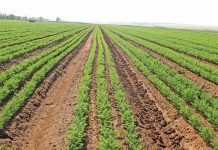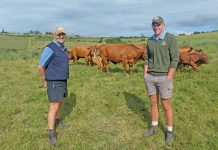Despite high interest rates and broad consumer resistance to the cost of luxury items, Distell’s results for the 2008 financial year show solid growth, especially in Africa where revenue was up 28% and volume growth up 24%. he company said investment in staff and infrastructure should continue to translate into sustained growth in the foreseeable future. African countries outside the Botswana, Lesotho, Namibia and Swaziland region are starting to make a significant contribution, with revenue up 43% in the past financial year.
According to Peter Wille of BOE Private Clients’ investment research team, the Angolan ready-to-drink and whisky bottling plant is expected to come on-stream in April 2009. The new infrastructure should boost Distell’s profits from Angola during the next financial year. “African market has low levels of penetration and should macro conditions remain favourable continued growth can be expected for a number of years,” said Wille. espite a pressurised consumer environment in SA, revenue growth was up by 12% and volume grew by 4%.
Wille predicts the newly launched Burchell and Vawter drinks will boost ready-to-drink sales in the coming year. I nternationally, Distell also performed well. Revenue was up 24% and volume by 13%. management foresees a possible global whisky shortage which may bode well for the company. Some R225 million will be spent upgrading whisky facilities in Wellington, a prudent investment if the shortage occurs. “Distell has proven over the last year why it deserves a premium rating,” said Wille. “With almost 80% of revenue dependent on SA consumers, the company still managed to increase earnings by 21%. This indicates the products are of high quality and the brands are well managed.” – Sonja Burger
EU commissioner says the world needs higher yields
Commenting on high food prices Mariann Fischer Boel, the European commissioner for agricultural and rural development, said the biofuels industry proved a handy scapegoat, but the real reasons should be seen as a complex interaction between bad weather in major production areas such as Australia, and increased demand from developing countries such as India and China. “India’s middle class grows by 25 million people annually,” she commented at a media briefing at Stellenbosch University recently. All producing countries need to look at technology that will increase yield, and use natural resources more efficiently.
Boel said countries that responded to the world food crises with export restrictions, are solving a short term problem, but worsening a long term situation. “Clamping down on exports doesn’t encourage production and that is exactly what the world needs,” she said. “High food prices can only be addressed by high food production.” F isher Boel added that talks between South Africa and the were healthy. She referred to the fact that wine exports from South Africa had increased by 70% since 2001.
However, Boel said there is still room for improvement and SA could benefit from Southern African Democratic Community (SADC) trade agreements with the EU. South Africa is currently excluded from the interim agreement between the EU and SADC. Commenting on Fisher Boel’s speech Dr Mohammad Karaan, agricultural economist at the University of Stellenbosch, said the situation between the SADC and South Africa is complex, and it’s unlikely we would be able to join other SADC countries in trade negotiations with the EU any time soon. A recent study by the University of Stellenbosch has shown African imports and exports to other SADC countries are distorted and that we are importing and exporting the wrong produce. – Wouter Kriel








